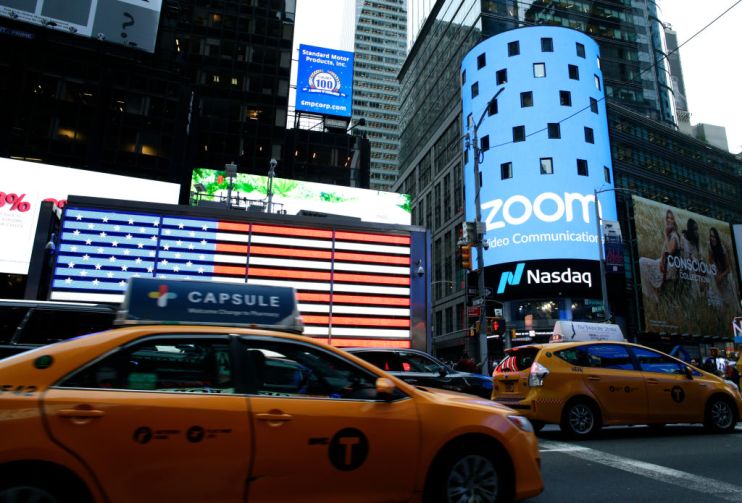We’ve spent months on Zoom, but we mustn’t forget to “zoom out”

When threatened, human beings automatically focus intently on the danger. This amazing ability to “zoom in” is why you’re here. It kept your ancestors alive while others weren’t so lucky.
In hunter-gatherer tribes, threats were short-lived but lethal. When a rival clan runs out from the trees, being focused pays off. However, what kept our ancestors from a sticky end doesn’t always serve us well in modern life. Our brains are poorly-designed for slow-burning challenges.
Take Covid-19. Unlike the sudden appearance of a sabre-toothed tiger, the pandemic has dominated life for months, not moments.
Read more: Zoom revenue surges on continued pandemic video-conferencing demand
Many people are suffering from fatigue and brain fog. This makes sense as research shows that being anxious for long periods means we overdose on the “fight-or-flight” hormone adrenaline. This is exhausting as well as being mentally and physically unhealthy. What’s more, it suppresses the very qualities we need to respond successfully to a disrupted environment: learning, creativity and balanced decision-making.
This is why, after five months of coronavirus fear, it’s high time that we consciously balance our genetic tendency to zoom in with time spent zooming out: learning to reflect on a wider and longer-term view.
Research shows the human brain needs to explore to stay happy. In addition, in an economy with less job security, it’s a smart move to take control of your own learning and development. This will allow you to build the new skills required for 2021 and beyond.
Read more: Your career break is an asset, not a hindrance, to your job application
Do for yourself what enlightened businesses always do in a downturn: prepare for what comes next. In a study carried out after the 2008 financial crisis, those organisations which invested average or high amounts in their leadership development grew profits by approximately 200 per cent. Those which invested low amounts grew profits by just 50 per cent. It’s not surprising then that people are following the same logic with a significant increase in online learning by adults through the Covid period.
It makes sense to learn about things directly linked to your career. But it’s also vital to allow your curiosity to roam widely across new domains. The CGI animation business Pixar uses this logic. It offers classes on everything from self-defence to drawing. Employees are encouraged to dedicate up to four hours of every week to their education.
Pixar’s policy is supported by neuroscience. Researchers at California Institute of Technology showed your curiosity follows an inverted U-shape curve. This U-shape is responsible for the weird phenomenon when you notice or learn something new — a new brand of car, dog breed or specialist sport — it seems to crop up a lot in your life. This happens because your new knowledge has primed your brain.
The insight we can use is: curiosity is a self-fulfilling prophecy. Open any door in a new knowledge domain and it leads to a lifetime of discovery.
A little investment in random, but fascinating, knowledge — from Victorian literature to Japanese design, computing coding to jet propulsion, DNA strands to ballet — may pay dividends when you are called upon to create new ideas.
Curiosity is a vital skill to navigate our fast-moving and disrupted world. This is why it’s short-sighted and pointless to demand an immediate return on your investment in learning. The key is to value knowledge for its own sake. You never know when it’ll come in useful.
Main image credit: Getty